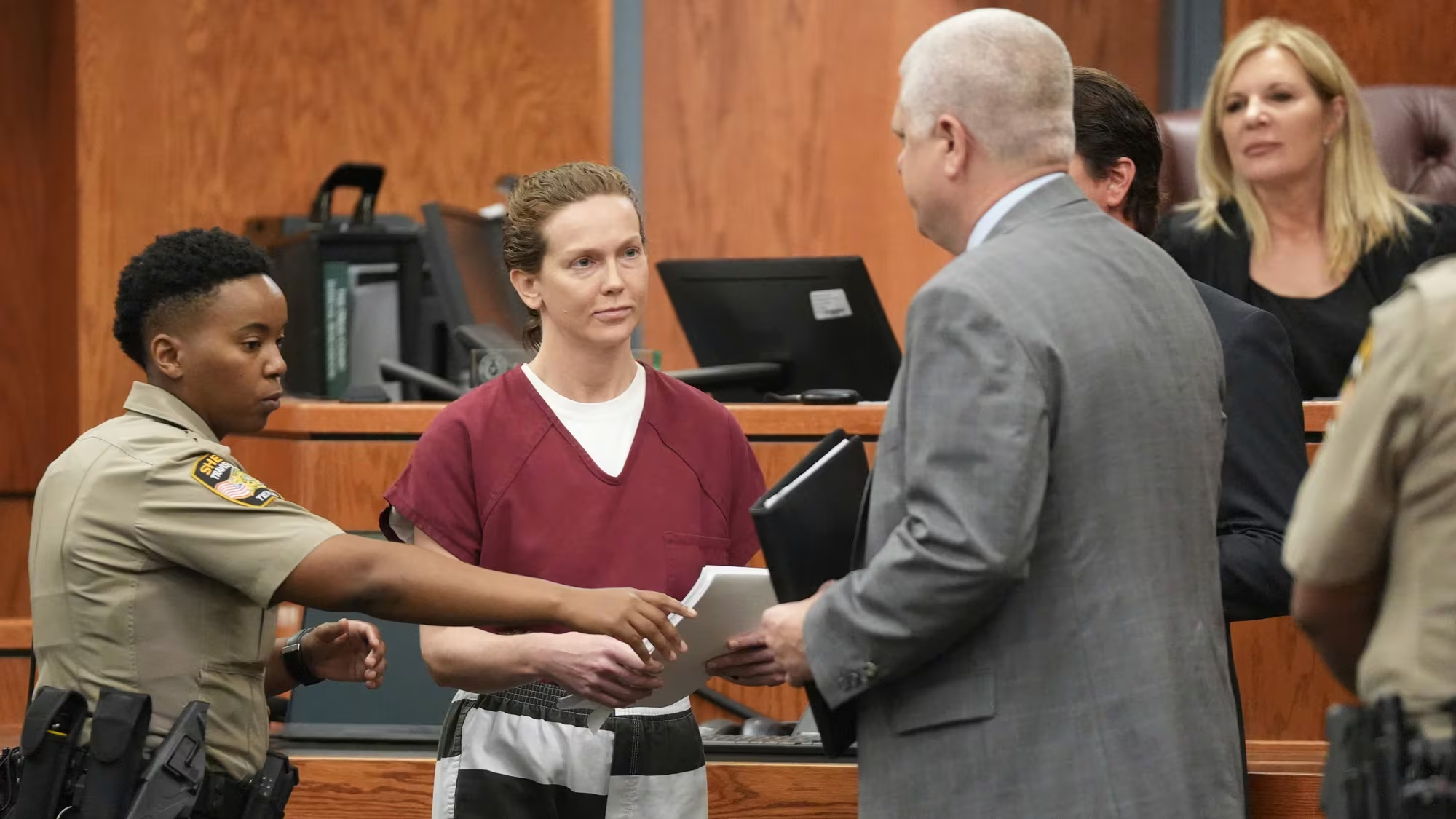By Jim Vertuno
The murder trial of a woman accused of gunning down rising pro cyclist Anna Moriah Wilson and fleeing the country began Wednesday with Texas prosecutors telling jurors they would hear Wilson's final screams and the shots that killed her.
Kaitlin Armstrong, 35, has pleaded not guilty to murder and faces up to 99 years in prison in the May 2022 slaying of Wilson, a competitive gravel and mountain bike racer. Wilson had been shot several times when she was found at a friend's home before a race that she was among the favorites to win.
“The last thing Mo did on this earth was scream in terror," Travis County prosecutor Rickey Jones told jurors in opening statements.
He said nearby surveillance equipment captured the screams.
“Those screams are followed by ‘Pop! Pop!’” Jones said, punching his fist into his hand for emphasis. “You won’t hear any more screams after that.”
Seconds after those shots, Jones said, “Kaitlin Armstrong stood over Mo Wilson and put a third shot right into Mo Wilson’s heart."
In a short opening statement, defense attorney Geoffrey Puryear said Armstrong was caught in a “web of circumstantial evidence.”
No video evidence or witnesses can put Armstrong at the scene of the shooting, Puryear said.
Police have said Wilson, a 25-year-old Vermont native, had previously dated Armstrong’s boyfriend, Colin Strickland, who also was a competitive gravel racer, and had gone swimming with him earlier in the day. The trial began three weeks after authorities said Armstrong tried to escape from custody.
Prosecutors said they will show that Armstrong tracked Strickland’s communications with Wilson — as well as Wilson’s whereabouts — in the weeks and days before the shooting. Armstrong was able to track Wilson’s location because Wilson had not turned on a safety feature on a phone app.
Armstrong's SUV was seen at the apartment where Wilson was staying the night she was killed. Police also said shell casings found at the scene matched a gun found at Armstrong's home.
Investigators quickly cleared Strickland. Prosecutors said Wednesday that video and cellphone calls, texting, and location data will confirm that he was nowhere near the shooting.
The case drew international headlines when Armstrong fled the country after her initial meeting with police, leading to a 43-day search. Investigators said she sold her vehicle for $12,000 and fled the country using her sister's name, email, credit card and passport.
Federal authorities tracked Armstrong to Costa Rica, where prosecutors said she spent $6,425 for surgery to change her appearance and used several aliases while attempting to establish herself as a yoga instructor. She also had cut and darkened her hair, and had a bandage on her nose and discoloration under her eyes when arrested at a beachside hostel.
Armstrong told police when she was arrested that she was injured in a surfing accident.
Armstrong's attorney suggested the sudden flight out of the country was not an attempt to escape justice.
“She would have no reason to know about any (arrest) warrant, You will hear Kaitlin is passionate about travelling and passionate about yoga,” Puryear said.
The case took another turn when authorities said Armstrong tried to escape from two officers who escorted her to a medical appointment outside of the jail on Oct. 11.
Cellphone video recorded in the parking lot showed Armstrong, handcuffed and in striped jail clothes, running from an officer and trying to climb a fence. Authorities have said Armstrong appeared to plan her escape by complaining of an injury to get the outside medical appointment and have her leg restraints removed.
She faces an additional felony escape charge punishable by up to 20 years in prison.













